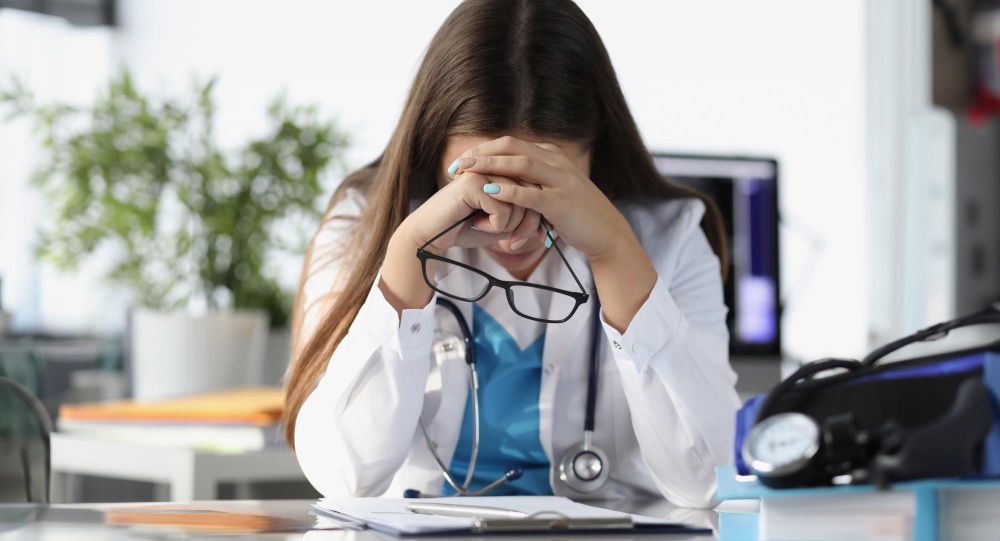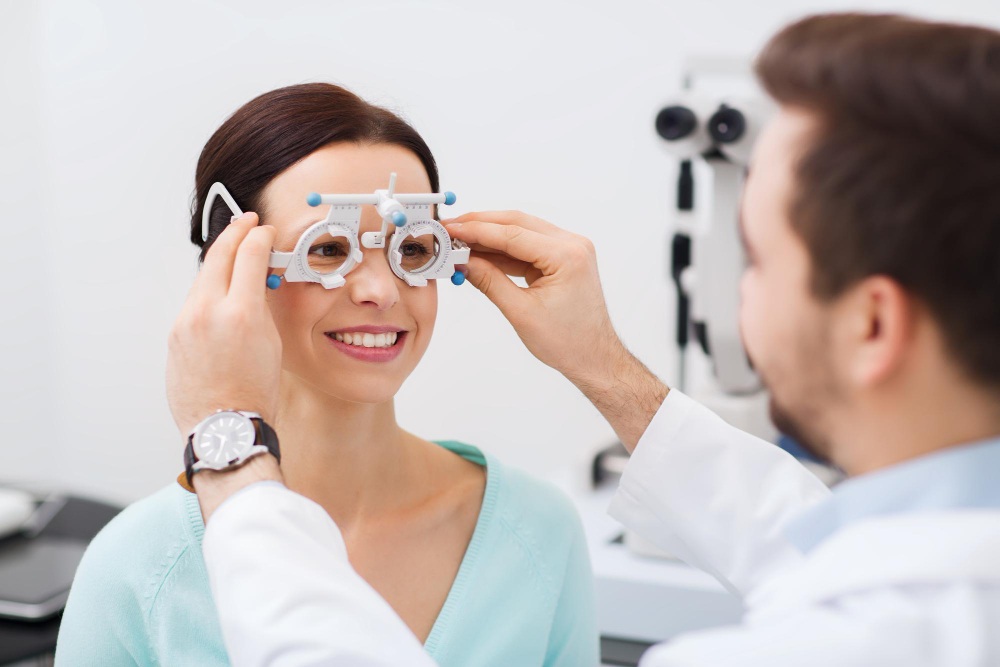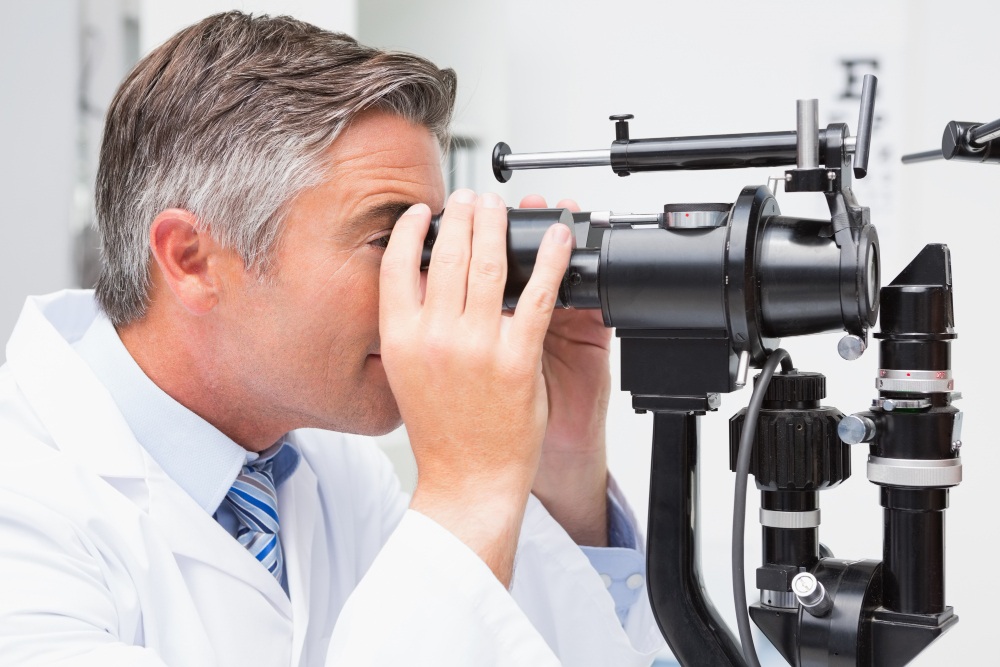
Do you know that if your blood pressure rises, it strains your heart and causes havoc to your vision? According to a recent report, about 30% of patients with high blood pressure suffer from eye disease. This means high blood pressure is a silent cause of many health problems, including issues with your eyesight. Managing it on time is crucial to protecting your vision.
Curious to know the connection between high blood pressure and eye diseases? Continue reading this blog…
How Can High Blood Pressure Impact Your Eye Health?

Heart care experts say high blood pressure is a major cause of common eye conditions. It severely affects the retina and damages its blood vessels. Actually, The retina is a sensitive tissue located at the back of the eye. When high blood pressure causes significant damage to the blood vessels in the retina, it leads to a condition called hypertensive retinopathy. In this condition, you can experience bleeding, swelling, or the formation of scar tissue in the retina, which can lead to vision issues. Even the small blood vessels can burst and lead to retinal hemorrhages.
Another condition is choroidopathy, in which high blood pressure causes fluid to accumulate beneath the retina. It can cause retinal detachment and is a major cause of blurred vision.
Though it is a very rare case, sometimes hypertension can damage the optic nerve, and it is known as hypertensive optic neuropathy. Treating this issue immediately is crucial; if left untreated, it may cause blindness.
Other than that, if you are a patient with high blood pressure, you are at a higher risk of developing Glaucoma. It includes various eye conditions that damage the optic nerve.
What Are the Symptoms of Hypertensive Retinopathy?
Among all the eye diseases mentioned above, the most common is hypertensive retinopathy. Unfortunately, it does not have visible symptoms. If you undergo an eye exam, you can detect it easily. Otherwise, when the condition progresses, some symptoms start to appear. The most common of them are:
- Blurry Vision
- Eye Redness
- Double Vision
- Visual Distortions
- Blind Spots
- Sudden vision loss
- Headaches
- Trouble with night vision
- Abnormal eye movement
Can You Treat Hypertensive Retinopathy?
Once you are clear with the symptoms, the next thing that comes to mind is whether hypertensive retinopathy can be treated. The best way to overcome this condition is by maintaining normal blood pressure. The more stable your blood pressure is, the less impact it will have on your eyes. You should take proper blood pressure medications regularly to get complete control over it.
How Do Eye Care Professionals Diagnose Hypertensive Retinopathy?

To have a confirmed diagnosis of hypertensive retinopathy, it is always better to consult your eye conditions with eye care professionals. They have specialized diagnostic tools to examine the back of the eyeball. During the examination, they typically look for the following signs:
- Narrowing of blood vessels
- Any spots on the retina
- Swelling in the central area of the retina
- Leakage of fluid from blood vessels
- Bleeding at the backside
After watching for all these signs, they also take detailed pictures of the retina and document the condition to monitor changes over time. This early detection is very important to address the existing eye issues and to prevent you from vision loss.
How to Prevent Hypertensive Retinopathy?
Now, let’s find out how you can avoid this condition in your daily routine. Following are some effective ways to prevent this condition:
1. Have A Healthy Diet
Eating a healthy diet is the first best way to prevent hypertensive retinopathy. Typically, you should take a diet low in sodium and cholesterol. Plus, eat as much vegetables, fruits, and protein as possible.
2. Regular Exercise
Regular physical exercise is another way to maintain your blood pressure in a normal condition. You can start any physical activity, such as swimming, walking, jogging, cycling, etc. Once you adopt these physical activities, your blood pressure will be under control.
3. Manage Stress
Stress is also a big reason for hypertension and eye problems. You have to overcome it in order to protect yourself from high blood pressure and eye diseases. To stay healthy, you can do deep breathing, meditation, yoga, and other stress management practices.
4. Stop Smoking
The saying “Smoking and alcohol kill” is quite true. Smoking, in particular, harms blood vessels and raises blood pressure. Alcohol can also contribute to high blood pressure and other health issues. If you smoke or struggle with alcohol addiction, it is important to seek help to overcome these habits.
5. Routine Eye Exams
If you suffer from hypertension or are at risk, you should have regular eye inspections. Early detection of any disease can protect you from huge losses.
Conclusion
In short, high blood pressure and eye diseases are highly linked and can cause serious damage to your vision. Understanding all the risks and taking preventive measures to manage your blood pressure and preserve your eyes is essential. Moreover, consulting a trusted eye care center, such as Texan Eye Care, can provide you with a personalized plan to maintain your eye health. So, take every possible step and prioritize your eye health!
FAQS
Yes, early detection and lifestyle changes can improve your symptoms. However, if the issue has been persisting for a long time, then some damage is permanent.
Yes, fruits rich in vitamins A, C, and E and minerals like zinc are highly beneficial for your eyes’ health. Leafy vegetables and fish are also great choices for protecting your vision.
